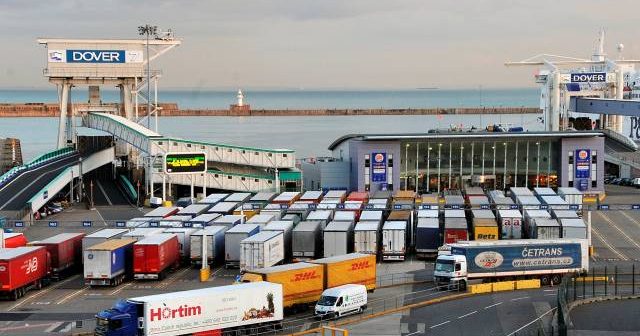
The mayhem in UK ports caused by the pandemic and stockpiling before the end of the Brexit transition period will not ease early next year. In fact, it will get much worse, with the potential to “kill trade and businesses”.
So warns a former Customs & Excise official who has spent 25 years advising businesses on how to comply with global customs rules.
“The first five days in the new year will be fine,” said Steve Cock, an adviser to KGH Customs, a trade consultancy owned by Danish shipping giant Maersk. “But after that first long weekend, things will get sticky. It won’t be long before lorries take 24 hours to get into the Channel tunnel.”
For years, UK businesses exporting to the EU have been able to move goods throughout the bloc without stumping up any supporting declarations.
From January 1, however, all UK firms shipping to the EU will have to lodge an export declaration, plus an import declaration on the other side. Almost all consignments heading beyond France to any other EU state will have to comply with “community transit” rules, yet “many businesses simply haven’t heard of the concept … and won’t have made necessary arrangements”, Cock said. “And if they don’t comply, they could find their goods liable for 20% VAT, which they will never be able to recover if they make the mistake with their paperwork on their entry into France.”
Tens of thousands of businesses that export to the EU will need to buy “transit guarantees” for the first time. These financial products are, in effect, insurance policies for the goods and the taxes due, payable if the shipment goes missing on its journey.
For a company acting on its own, setting up these arrangements can take months. As a result, most will have to pay to use specialist brokers. Doing so is not cheap and is expected to become more expensive. “Brexit could easily double the cost of a transit guarantee for lower-value consignments, such as £25,000 worth of clothing,” Cock said. “But for higher-value shipments like a lorry-load of cars, the cost could rise three or fourfold.
“This is a hidden cost of Brexit to business that I don’t think politicians are aware of — and an issue many companies haven’t clocked.”
Cock is even more worried about the way in which HM Revenue & Customs will treat VAT on imports from the EU into the UK from January 1.
He fears that countless firms are not aware they will become liable for VAT if they make the import declaration themselves, when it should be done by the supplier if the products are being delivered to the customer’s door.
“I think it will kill some businesses,” he said. “It’s a very boring, technical detail many will forget. It could mean businesses being hit in two or three years’ time with the sort of bills that they will be unable to pay.”
Many firms needing to navigate the dangerous post-Brexit rules will try to secure a customs agent — someone who works for an exporting company or is hired as a contractor to provide advice.
It is estimated the UK will require 50,000 more customs agents in the years ahead to complete the extra 215 million forms that may be needed because of Brexit each year.
The old forces of supply and demand have already begun to push up the cost of agents: salaries of £25,000 have been fairly typical, but pay packets of up to £35,000 are appearing.
And how do firms know they are using a competent customs agent? Confusingly, HMRC promotes a list of more than 800 agents on its website — but it says those on the list “are not approved or recommended by HMRC”.
It is not hard to see parallels with the “Millennium bug” meltdown that was expected in 2000. Chaos did not come to pass, but that did not stop businesses spending fortunes to protect themselves from IT disasters, or contractors charging big fees for help that was not needed.
The new trading regime is all too real, though. Ministers have offered £50m in grants for companies to meet the costs of handling post-Brexit trade. Firms can claim £3,000 for hiring an in-house customs agent, £1,500 for training and £12,000 towards their salary. There have been reports of firms using the scheme to poach agents from other firms, even though they are already trained.
The government has also launched the Port Infrastructure Fund, which last week allocated its first grants. Newhaven, on the south coast, received £6.2m. And who is the port’s owner getting this extra help from the British taxpayer? The French government.
https://www.bmmagazine.co.uk
Tagged with: BUSINESS NEWS • ECONOMIC NEWS • MAKE MONEY


